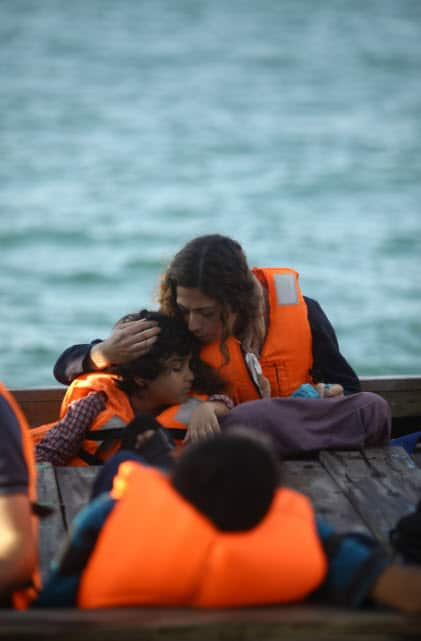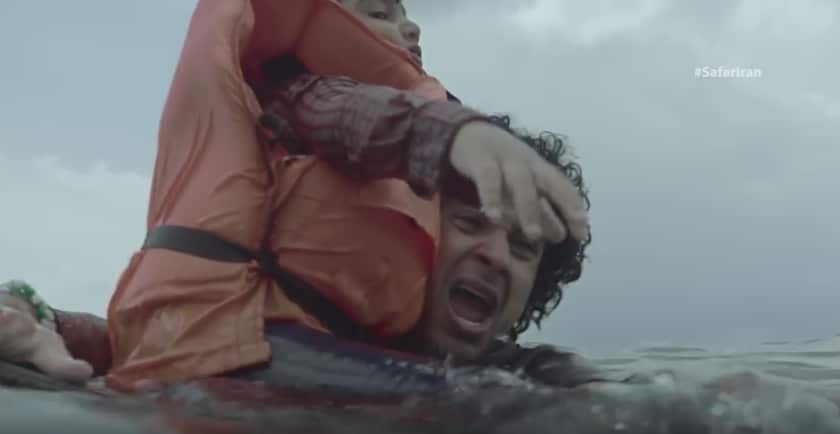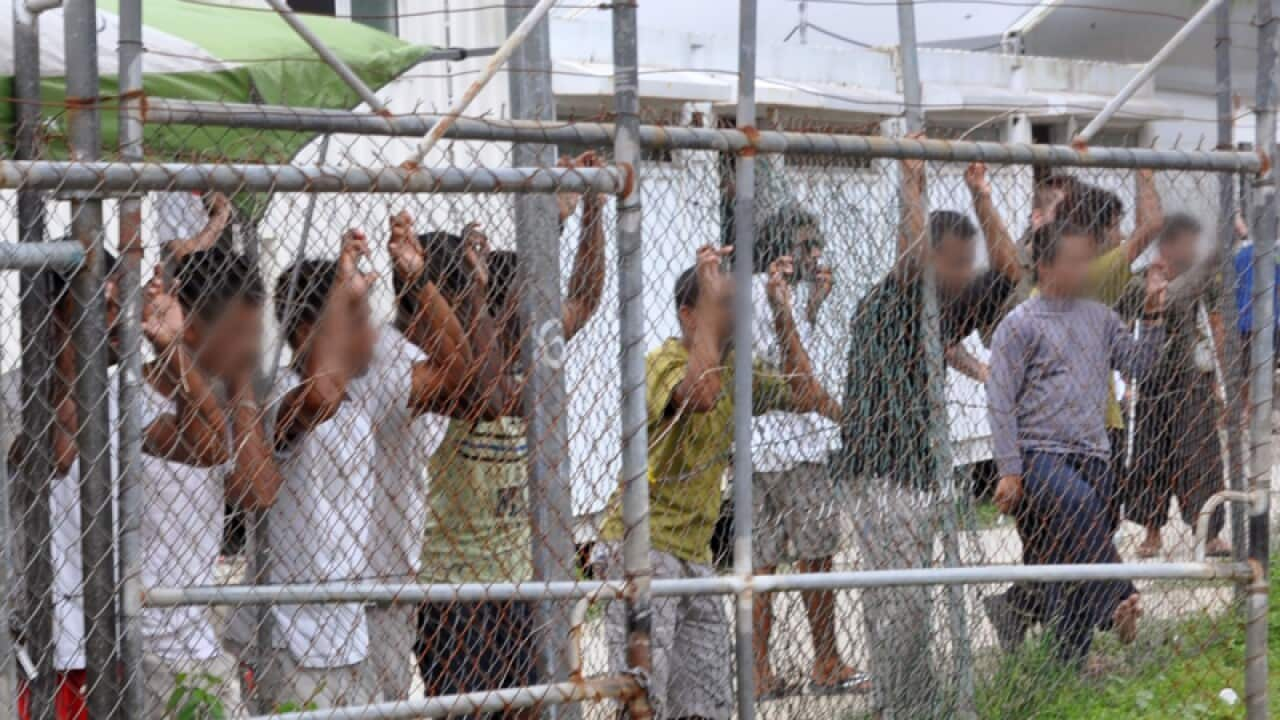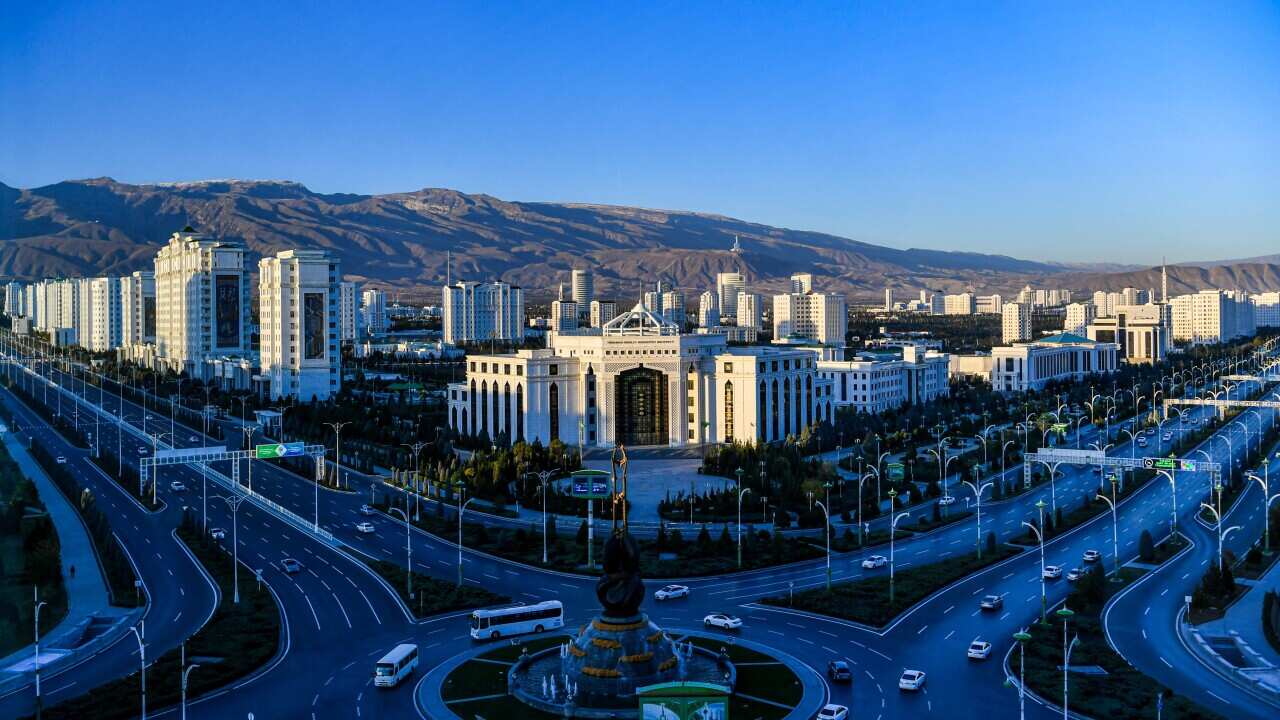Refugee and human rights groups have condemned a new film commissioned by Australia’s immigration department, which aims to deter Afghan asylum seekers from attempting to reach Australia.
Dr Graham Thom from Amnesty International Australia told SBS the film does little to address the refugee crisis.
"While some people may be dissuaded from seeking a new life in Australia, the threat of war or persecution remains in their home countries and they will still undertake a journey in search of safety, just to a different destination,” he said.
The film, titled Journey, follows the story of asylum seekers suffering horrible circumstances as they try to make the trip to Australia by boat. It cost the government almost $6 million to make and was filmed in three different countries.
It cost the government almost $6 million to make and was filmed in three different countries.

A scene from the film: Sara comforts her son Amir on their attempted journey to Australia by boat. Source: Supplied
Another $1.63 million went to Lapis Communications to promote the film.
“That money could have been spent to address the root causes of why people are forced to flee their homes, used to support people in transit, or put towards increasing and improving the efficiency of resettling people to Australia," said Mr Thom.
Paul Power, CEO of the Refugee Council of Australia, agrees that the money could have been put to better use.
“The $6 million spent by Australia on making and promoting this film would have made a great practical difference to many organisations supporting people who have been displaced from their countries due to persecution or conflict,” he said.
Mr Power believes Australia needs to meaningfully engage with our region to help stop the flow of refugees from the source of their persecution.
“It’s questionable the role a film can have in the longer term, in resolving the conflict and persecution that forces people to flee,” he said.
Journey made its premiere on Friday to audiences in Afghanistan via local television. It was also broadcast in Pakistan, Iran and Iraq.
Put It Out There Pictures, the company which produced the film, state on their website the telemovie aims to inform audiences ‘about the futility of investing in people smugglers, the perils of the trip, and the hard line policies that await them if they do reach Australian waters'.
'This is about people, not politics. People continue to come to Australia to seek a better and safer life, far too often with tragic consequences,' the production company told ABC's Lateline in statement on their website.
The Department of Immigration and Border Protection say the film complements and reinforces the Australian government's anti-people smuggling message.
"Independent research in these countries has revealed misunderstandings and false rumours about Australia’s policy, and a perception that Australia remains a preferred destination country for those seeking to travel illegally by boat," a spokesperson for the department told SBS News.
"The Journey telemovie is a key part of ongoing anti-people smuggling communication activity in Afghanistan, Pakistan, Iran and Iraq to ensure awareness levels of Operation Sovereign Borders remain high and to inform people considering travelling by illegal means of the associated dangers and consequences," the spokesperson said. A number of young Afghan men told the film did achieve its goal.
A number of young Afghan men told the film did achieve its goal.

Source: Supplied
“It was a good movie,” said Mostafa Ebadi, 23. “It showed the lies smugglers tell passengers before leaving.”
Others were not so convinced.
Humayoon, 29-year-old Afghan man, said he was only staying in the country as long as he had a job.
“If I can’t feed my family, what am I supposed to do,” he said.
Groups in Australia say policy, not films, should be the priority.
“UNHCR-registered Afghan refugees have been stuck in Indonesia since the Australian Government announced that anyone who arrived by boat after July 1, 2014, would never be eligible for resettlement in Australia,” Dr Thom said.
"The Australian Government should take steps to reverse this policy and allow the refugees trapped by the moratorium to pursue resettlement through a fair process. Otherwise they will have little option but to put themselves back into the hands of people smugglers."
The Refugee Council says the situation of asylum seekers is desperate.
“No one wants to see people dying on dangerous boat journeys, but if people’s lives are in danger, many people will risk dangerous boat journeys,” says Mr Power.
Related reading

Tensions at Manus Island detention centre










